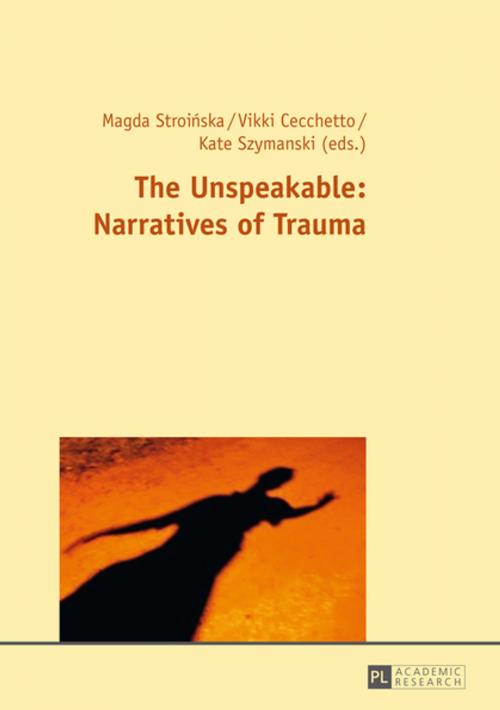The Unspeakable: Narratives of Trauma
Nonfiction, Reference & Language, Foreign Languages, Language Arts, Health & Well Being, Psychology| Author: | ISBN: | 9783653984187 | |
| Publisher: | Peter Lang | Publication: | July 15, 2014 |
| Imprint: | Peter Lang GmbH, Internationaler Verlag der Wissenschaften | Language: | English |
| Author: | |
| ISBN: | 9783653984187 |
| Publisher: | Peter Lang |
| Publication: | July 15, 2014 |
| Imprint: | Peter Lang GmbH, Internationaler Verlag der Wissenschaften |
| Language: | English |
How does a trauma survivor communicate «what can’t be said out loud» to others? In what form? How can we – readers, listeners, viewers – recognize the pain and suffering hidden behind words, pictures, or other artifacts produced by trauma survivors? This volume presents a possible response by bringing together the «expressions of the unspeakable» by trauma survivors and the interpretation of researchers in various fields, i.e. clinical psychologists, linguists, anthropologists, literary and film scholars, historians, and visual artists, some of whom are survivors of trauma. By describing or analyzing different strategies for finding a narrative form for expressing the survivor’s trauma, the contributors offer not only insights into how the survivors dealt with the pain of traumatic memories but also how they were able to find hope for healing by telling their stories, in literature, graphic novels, visual art or simply by creating a personal narrative in their own voice.
How does a trauma survivor communicate «what can’t be said out loud» to others? In what form? How can we – readers, listeners, viewers – recognize the pain and suffering hidden behind words, pictures, or other artifacts produced by trauma survivors? This volume presents a possible response by bringing together the «expressions of the unspeakable» by trauma survivors and the interpretation of researchers in various fields, i.e. clinical psychologists, linguists, anthropologists, literary and film scholars, historians, and visual artists, some of whom are survivors of trauma. By describing or analyzing different strategies for finding a narrative form for expressing the survivor’s trauma, the contributors offer not only insights into how the survivors dealt with the pain of traumatic memories but also how they were able to find hope for healing by telling their stories, in literature, graphic novels, visual art or simply by creating a personal narrative in their own voice.















